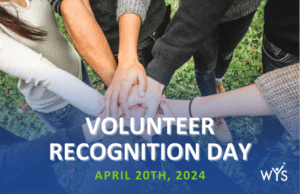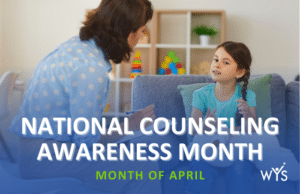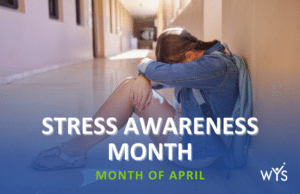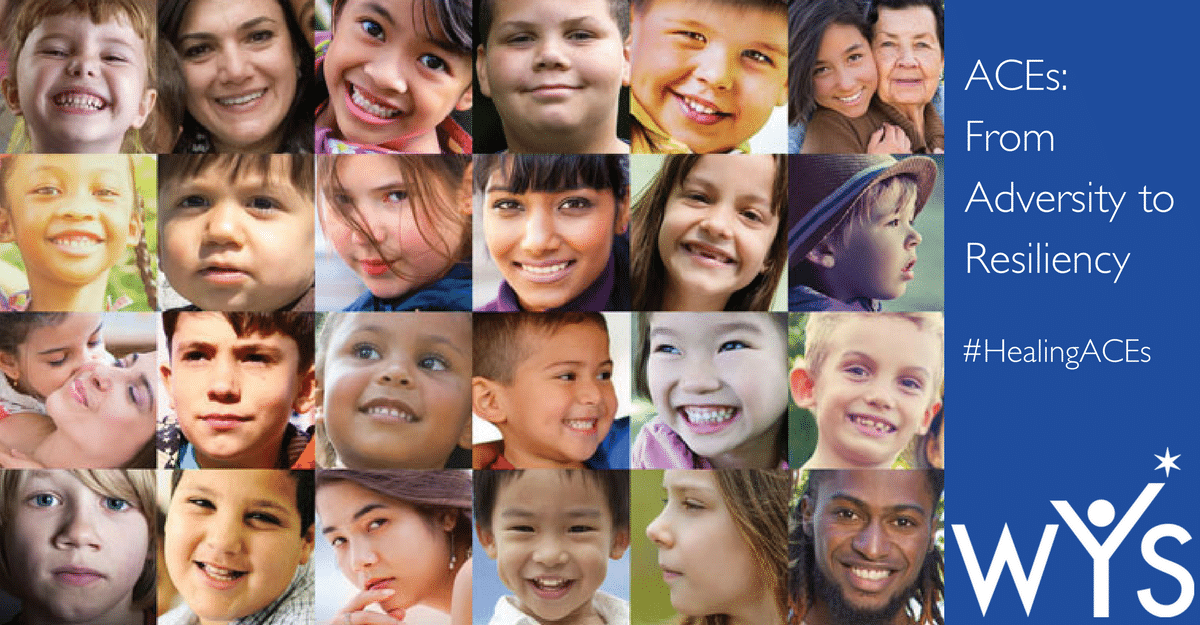
ACEs – From Adversity to Resiliency
Recently, we attended a local Rotary Club event and shared a bit of what we do at Western Youth Services (WYS). A man approached our booth and told us that his children were WYS clients 15 years ago. He said his entire life has been turned around as a result of our care. I was ecstatic… These stories move me every day both as a licensed psychologist and the CEO of WYS.
This family is just one of hundreds of thousands who have been served by WYS in Orange County, CA since we started in 1972. Our comprehensive and holistic approach to address the root cause for each individual client is unique and changes the trajectory of the lives of children, youth, and their families who face trauma, stress, and mental health concerns. We have always operated on the understanding that when left untreated, childhood adversity leads to addictions, physical and mental health problems, and more later in life.
ACEs Awareness to Action
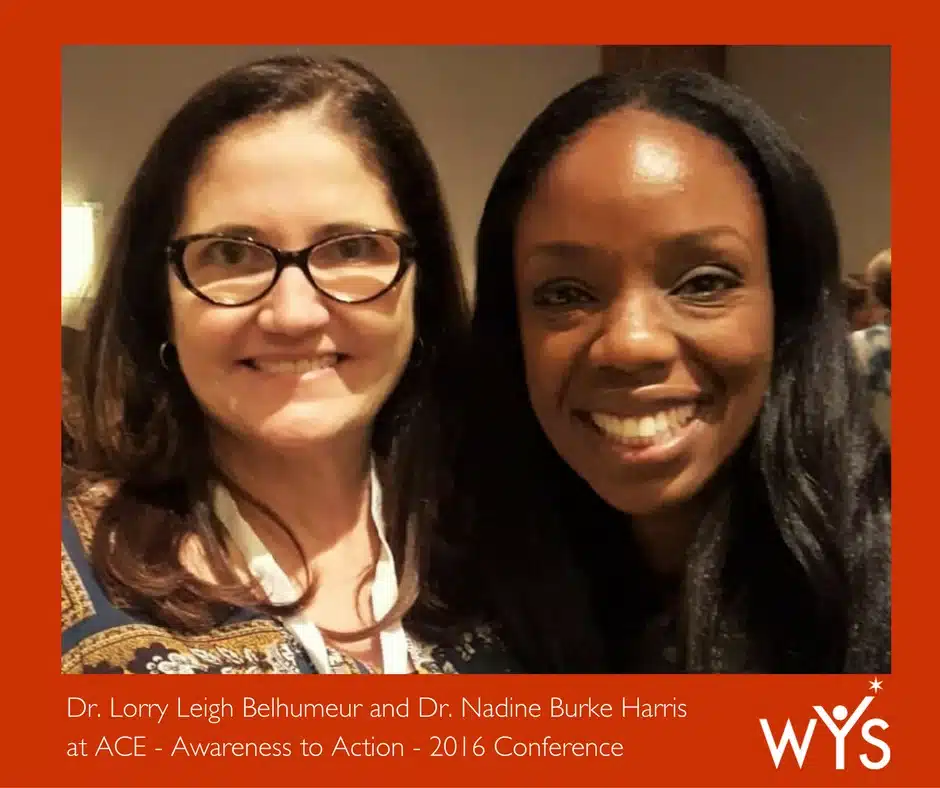
In our last article, I shared my insights from attending the ACEs Awareness to Action 2016 Conference. The focus of this event was to expand awareness of the growing ACEs movement, led by San Francisco pediatrician, Dr. Nadine Burke Harris who brought together thought-leaders and advocates from the education, early childhood, health, juvenile justice and child welfare sectors from around the country.
ACEs stands for the Adverse Childhood Experiences. The ACE Study is a landmark research study conducted by Drs. Vincent Felitti of Kaiser Permanente and Robert Anda of the Center for Disease Control (CDC) in 1998 and is only now coming to light. If you haven’t heard of ACEs, you are not alone. One article referred to it as “the largest, most important public health study you never heard of.” The ACE study simply asked 10 questions about childhood experiences and physical and mental health and behaviors in adulthood. The results were astonishing. Two thirds of study participants reported at least one ACE and more than one in five reported three or more. The more ACEs, the greater the risks for behavioral, physical and mental health issues later in life.
Early Intervention
Dr. Burke Harris’ Center for Youth Wellness reports that sixty-two percent of adults in California have at least one ACE and emotional abuse is the most common. At WYS we see the significant impact of ACEs in the Orange County community and are making a difference right here, right now. For Example, WYS partners with a school in an impoverished neighborhood. This neighborhood is known for its gang violence and there is not one child in our program that has fewer than five ACEs. Though faced with high levels of adversity, these children show positive outcomes and improvement in all functional areas when they receive on-site services by a WYS staff member.
A high ACE score does not need to be a life sentence, there is evidence-based research on what happens in adulthood when childhood trauma is not addressed. The question that arises for me is, can we turn it around? As indicated in the example above, the answer, in many cases, is YES.
A high ACE score does not need to be a life sentence #HealingACEs #ACEsWYS
Building Resiliency
Early intervention and targeted treatment can help heal and lower the negative impact of ACEs. As healing occurs, positive experiences, such as success in school and closer family relationships are strengthened and the negative effects of ACEs are reduced.
Every child has both adverse and negative experiences as they grow. What we have learned through experience and research is that positive experiences build resiliency and resiliency heals childhood trauma. Sometimes that is all it takes.
“Resilience depends on supportive, responsive relationships and mastering a set of capabilities that can help us respond and adapt to adversity in healthy ways. It’s those capacities and relationships that can turn toxic stress into tolerable stress.”
Dr. Jack Shonkoff, Pediatrician and Director of the Center on the Developing Child at Harvard University
Meet Isaac
Isaac was, by most measures, a typical 5th grade boy. He wasn’t disruptive and was a good student. He didn’t need extra attention. One day his teacher noticed a shift. Isaac seemed depressed and withdrawn. His schoolwork and grades began to drop.
That’s when she reached out to us for help. Since our school-based program was at his school, both the teacher and Isaac began to receive support immediately. Isaac confided in the counselor that his father was imprisoned. The family no longer had a place to live. He and his younger siblings were staying with different friends.
Issac missed his family. He worried…that they would forever be homeless…if there would be enough food…if his dad would ever come home.
Doing homework and performing well in school were the last things on Isaac’s mind.
Isaac’s counselor connected his mother to a variety of programs. She attended parenting workshops. We helped the family to find support with their daily living expenses.
Just ten weeks after Isaac was referred to us, the family found a place to live.
Isaac says he no longer worries about food and shelter… and he is doing well in school, again.
Collaboration is Key
Isaac’s story is a powerful example of how our multi-disciplinary prevention and services can stop the progression and impact of high ACEs on multiple fronts.
Isaac’s story… how multi-disciplinary prevention and services stop the progression of high #ACEs #HealingACEs
At the ACEs Awareness to Action 2016 Conference, I repeatedly heard both speakers and attendees mention that a collaborative approach is needed to fix this public health crisis. At WYS, we take this approach. We collaborate with social services, schools, hospitals, research centers, the juvenile justice system, emergency shelter home for kids, and other youth serving organizations with a “whatever it takes” philosophy.
Last year, we provided direct service in our five clinics, 10 satellite locations, schools, and homes to over 17,000 children and families. Over 38,000 children and families were served indirectly though outreach, trainings, collaboration and coordination of care. But this is not enough… Data from a study conducted by the Center for Disease Control (CDC) suggests that one in five children have a diagnosable mental health condition. Of these, over 50% are untreated. This is outrageous.
What we consistently see is that the majority of the children we serve have experienced many adverse childhood experiences before the age of 14. Although awareness of this epidemic is growing, the focus both on prevention and intervention is critical. The ACE Study proves that when children experience abuse, violence, parental divorce and more, there are predictable future outcomes, if left untreated. With our holistic approach, we help children heal from the adverse effects and change the trajectory of their life. We are committed to both prevention and intervention. We offer programs that treat mental health issues and programs designed to build on strengths in order to prevent them from happening in the first place.
With our integrated and collaborative model, we look at the whole child and family. If they’re concerned about getting food on the table or being kicked out of their home, that is what they focus on.
We meet them where we are and link them to other resources like emergency services, food banks, domestic violence services, and vocation services. We approach each client individually and ask, “what are your exact needs?” Then we work collaboratively with our over 100 partners and get them the help. Just like we did with Issacs’s family.
Special Report: Healthy and Hopeful: Healing Trauma
We feel so strongly about the ACE Study we partnered with Measurement Resources Company (MRC) and prepared a Special Report titled: Healthy and Hopeful: Healing Trauma – How the WYS Collaborative Model of Mental Health Services Builds Resilience and Alters the Impact of Adverse Childhood Experiences (ACEs).
This Special Report focuses on the original ACE Study and the WYS collaborative mental health efforts and provides an overview of evidence, best-practices, and case for support for understanding ACEs as part of mental health prevention and treatment. Our goal is to reduce the prevalence of diagnosable mental health conditions in youth from one in five to one in ten in this generation.
The results of the Special Report show:
 ACEs can impact health and well-being of a person from cradle to grave.
ACEs can impact health and well-being of a person from cradle to grave.- ACEs pose a threat to proper brain development.
- More than half of the adults in California have at least one ACE.
- Individuals with four or more ACEs are seven times more likely to have mental health problems and eleven time more likely to attempt suicide than individuals with zero ACEs.
- Without intervention, the estimated weighted annual community cost per child is $18,856.
- WYS is healing ACEs with nearly every research-recommended strategy.
- If you would like to receive a complimentary copy of Healthy and Hopeful: Healing Trauma – How the WYS Collaborative Model of Mental Health Services Builds Resilience and Alters the Impact of Adverse Childhood Experiences (ACEs), please click here
SPECIAL REPORT- Healthy and Hopeful: Healing Trauma #HealingACEs #mentalhealth #ACEs2016

Lorry Leigh Belhumeur, Ph.D.
Chief Executive Officer
Western Youth Services




